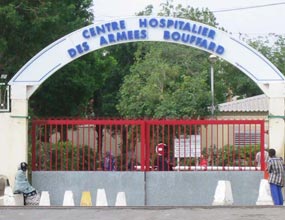Private Mubarak commits political suicide. He leaves his fate to history
The speech that Egyptian President Hosni Mubarak has just made on Egyptian television is impressive in terms of its very republican and military posture. On the genre "I wouldn't give in", it constitutes both a political testament, of a certain grandeur, but also stems from a suicidal blindness.
A political will
This speech also sounds a bit like a political testament for the Egyptian leader of the past thirty years. " I have devoted my entire career to the safeguard of the nation, the security, the legitimacy and the safeguard of the Nation he explained. " I spent years for the people and the country. (...) History will judge me for my merits and my demerits. (...) I would die on Egyptian soil”.
An orderly retirement
Previously he would like to retreat in good order and slowly. He makes a whole series of what seem like extraordinary concessions to him. He thus announces that he will not stand for the fall presidential election (“I would not seek another mandate”), that the conditions for candidacy will be relaxed, that a reform process will begin in Parliament. He also specifies that those responsible for the deaths in the street will be prosecuted and asks the police to respect the population and their "dignity". But that's all !
Working towards a peaceful transition
He does not want a "Ben Ali" solution with exile as the key. He wants to stay in power and work for measures and procedures that guarantee peaceful transition of power ". In fact, he gives himself nine months of respite. Nine months which, to see the demonstrations today, may well not pass as peacefully as hoped. Because this speech comes too late. It could have been received a week ago, surely, 48 hours ago perhaps. Now it is too late and too limited. Mubarak fails to resume the offensive. And with each additional blow, he retreats, losing a little more legitimacy. He is as if blocked with his tank column, caught in the haboob, this typical sandstorm of the Gulf and the Sahara, it is too late to advance or retreat.
Late from a war, looking for a heroic destiny
The problem is that Mubarak is not only behind by a speech, but also behind by a war, behind his people. His I am here and "I would die on Egyptian soil" strangely resembles certain speeches we heard during revolutionary periods. One could hear Mirabeau say "we are here by the will of the people and that we will only get out by the force of bayonets". Except that the will of the people now seems to be on the other side. We have the impression that Mubarak is playing provocation: kill me if you dare. But I won't go.
The worst thing for the international community
This speech is, for the moment, the worst thing for the Egyptians as for the international community. The situation now risks skidding at any moment in a confrontation between pro and anti-mubarak. Politically, Westerners will have to toughen up their rhetoric and no longer content themselves with calls for calm or a slow democratic transition. But a quick fix. And in this solution, only the departure of Mubarak, demanded loud and clear, and he alone can, if not restore calm, at least contribute to it. In the interlude, the evacuations of European citizens and others in Egypt will have to accelerate and expand. Means other than planes will have to be mobilized quickly, if the situation is not resolved quickly. The subject will certainly have to be raised in European summit.
The army in recourse
During the next few hours and days, the army will need all its composure and all its legitimacy to calm people down. To look at the images broadcast by Al Jazeera or through the channel "Citizen", from You Tube in particular, one can only be surprised, even flabbergasted by the ability to maintain crowds and the authority of soldiers who come with their bare hands, discuss and calm the most angry elements of the demonstrators, intervening if necessary with the police a few days ago, between demonstrators today.I am not sure that our police forces, although trained for such tests, would have had this capacity.
Read also:
